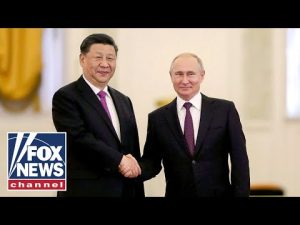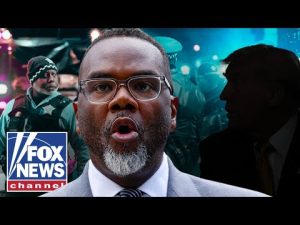Chicago, once proudly known as the “Windy City,” seems to be spiraling into a bullet-riddled battleground instead. Over the recent holiday weekend, reports indicated a staggering number of shootings in the city. Fifty individuals were shot, with eight tragically losing their lives. The chaos doesn’t stop there, as the violence continued relentlessly, with more incidents reported after the weekend. The grim reality is that many areas of Chicago are becoming synonymous with dangerous chaos rather than vibrant city life.
Mayor Johnson of Chicago seems intent on deflecting responsibility for the violence plaguing the city. He vehemently claims that the issue Chicago faces is not a violence problem but rather a gun problem stemming from red states. His rationale is interesting, as it conveniently shifts the blame to neighboring areas rather than addressing the situation directly. Meanwhile, Governor Pritzker appears equally determined to resist any form of external help, particularly from President Trump, who has expressed willingness to send in the National Guard to restore order.
In response to the ongoing chaos, there’s a noticeable division in how the citizens of Chicago want the problem addressed. Some residents are open to federal assistance if it means restoring safety and security to their neighborhoods. They view the involvement of the National Guard as a necessary intervention to regain control over their streets. However, others feel that more law enforcement isn’t enough; they argue that it would simply be a temporary fix and not address the root causes of the violence.
The political dance around crime policies unfortunately leaves innocent civilians trapped in an ongoing circus of violence. Instead of productive solutions, local leadership focuses its energy on pointing fingers and harboring grudges against perceived political adversaries. It’s almost as if there’s a belief that by denying help or blaming others, the violence will simply pack its bags and leave. Remarkable how that strategy has yet to show tangible results!
A comparison could be made to other cities embracing pragmatic solutions, seeing substantial reductions in crimes such as carjackings and violent altercations. Washington, D.C. appears to be one city where cooperation with federal initiatives is proving effective, with significant drops in crime rates. Perhaps it’s time for Chicago’s leadership to recognize that collaboration, even with political opponents, can lead to positive outcomes. The safety of residents should be the true north guiding their policies, not the compass of partisan politics.







